University Leadership and Governance
Board of Trustees
The Board of Trustees governs the university by establishing policy and exercising fiduciary responsibility for the long-term well-being of the institution. The board and its Executive Committee act on recommendations from board committees, university officers, and the University Senate.
Executive Leadership
Meet the executive team whose senior leaders represent the university’s major operational units; their role is to advise and work with the president to advance Emory’s mission.
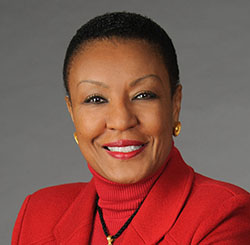
Leah Ward Sears
Justice Leah Ward Sears has served on the Emory Board of Trustees since 2010 and is an alumna of the Emory School of Law. Sears has been a part of the Emory community for 45 years, starting as an Emory Law student in 1977, then as an adjunct professor at the school, and for the past 15 years, as a valued member of the Board of Trustees. Sears has had a distinguished and groundbreaking career in the Georgia judiciary. Mayor Andrew Young appointed her to the City Court of Atlanta in 1982. Three years later, she became the first African American woman to serve as a superior court judge in Georgia. In 1992, Governor Zell Miller appointed her to the Georgia Supreme Court, where she served for 17 years, including four years as chief justice.
Interim President
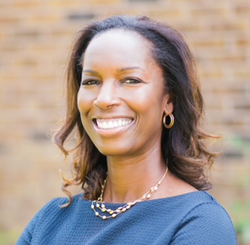
Badia Ahad
Badia Ahad is the provost and executive vice president for academic affairs and the Charles Howard Candler Professor of English and African American Studies. As the institution’s chief academic officer, she ensures the quality of undergraduate, graduate, and professional education and advances Emory’s progress as an eminent research university. The deans of Emory’s schools and colleges report to the provost on all academic matters. Additionally, Ahad provides leadership, guidance, and support for academic units across the Office of the Provost, working closely with other senior leaders within the division and across the university to continue advancing important efforts to build strong schools, foster faculty eminence, ensure operational excellence, and deliver an exceptional student experience.
Previously, Provost Ahad was the dean of Oxford College, where she was responsible for crafting the overall vision and establishing the strategic priorities of the college. She served as Oxford’s chief academic, administrative, and fiscal officer while maintaining a wide portfolio of responsibilities, including academic affairs, campus life and housing, finance and operations, communications, enrollment services, technology, advancement, and human resources.
A scholar of literary and cultural studies, Ahad joined Emory in 2023 after serving 18 years on the faculty at Loyola University Chicago. At Loyola, she held numerous administrative posts including serving as the director of the university core curriculum and vice provost for faculty affairs. In the classroom, Ahad has been honored with numerous awards for teaching and scholarship excellence.
She has published widely on the intersection of African American literary and cultural studies and positive psychology, with a focus on the social, emotional, and psychological conditions that foster human flourishing. Ahad also served as principal investigator on a $1 million-dollar ADVANCE grant to support STEM faculty retention and equity, funded by the National Science Foundation. She is recognized as a national expert on faculty development and mentoring, having served for nearly a decade as the director of academic training for NCFDD.
Ahad graduated with a bachelor’s degree from the University of Illinois at Urbana-Champaign and received an MA and PhD in English literature from the University of Notre Dame.
Provost and Executive Vice President for Academic Affairs
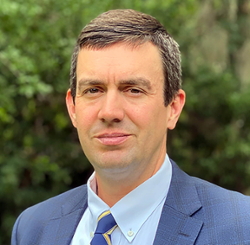
Luke Anderson
Luke Anderson is Emory's vice president for communications and marketing, with broad responsibility for advancing and protecting the Emory global brand. Prior to joining Emory in 2022, Anderson was the associate vice president for strategic communications and chief marketing officer at the University of Florida and the assistant vice president for communications at the University of Virginia. He has a BA in English literature from the University of Virginia and an MPhil in creative writing from the University of Dublin–Trinity College.
Vice President, Communications and Marketing
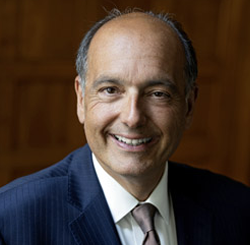
Christopher L. Augostini
Christopher L. Augostini serves as the executive vice president and enterprise chief operating officer for Emory University and vice chair for Emory Healthcare Board of Directors. He is responsible for ensuring the Emory enterprise, in which Emory University and Emory Healthcare are strategically and financially integrated, is poised to create an environment that fosters excellence in people, facilities, infrastructure, and operating and financial performance. His innovative and collaborative leadership style brings cross-functional and enterprise-wide teams together, enables them to do their best work, and drives excellence operationally and financially. The exceptional results that Augostini and his team have delivered have led to Emory being the university of choice for students, faculty, and staff and the health system of choice for patients, doctors, nurses, and staff.
Reporting to the president of Emory University, Augostini collaborates with members of the president’s leadership team, senior management leaders of Emory Healthcare, the Emory University Board of Trustees, the Emory Healthcare Board of Directors, and other stakeholders to identify enterprise opportunities and issues and to implement long-term sustainable solutions. As chief financial officer, he is responsible for strategic oversight and leadership of integrated financial, debt management, and cash strategies for the Emory enterprise. Under his direction, Augostini launched teams to develop the first all funds integrated financial plan and debt portfolio restructuring. Augostini leads the overall business operations strategy for Emory University including enterprise-wide master planning and real estate strategies; management of Emory’s approximately $7 billion investment portfolio; information technology and cyber security strategies; enterprise risk management, internal audit, and compliance integration; human capital practices of one of Georgia’s largest employers; and execution of campus services across Emory’s Druid Hill and Oxford campuses.
As the vice chair of Emory Healthcare’s Board of Directors, Augostini provides oversight of Emory Healthcare’s strategic financial position. Working with the executive vice president for health affairs and the Emory Healthcare leadership team, Augostini is responsible for multi-year financial planning to align with and in support of Emory Healthcare’s strategy with emphasis on high-quality, patient-centered care. Emory Healthcare, with more than 24,000 employees, 11 hospital campuses, and 425 locations, is the most comprehensive academic health system in Georgia.
Prior to joining Emory, Augostini served as senior vice president and chief operating officer at Georgetown University. Over his 17-year tenure at Georgetown, he consistently delivered improved operating results, balance sheet metrics, and investment returns. Specifically, he initiated the first multi-year operating, capital, and financial plan that addressed health care system losses and the impact on the enterprise. He also served as chief of staff to the first deputy mayor of the city of New York under Mayor Rudolph Giuliani, as well as deputy budget director and director of intergovernmental affairs overseeing the city’s efforts in Washington, D.C. and in Albany, New York. He served in numerous positions within New York State (NYS), including principal budget analyst for the NYS Ways and Means Committee and program analyst for the NYS Assembly Higher Education Committee. He is currently on the Board of Directors for W. R. Berkley Corporation, an insurance holding company. Augostini has a master's degree in public policy analysis from the State University of New York at Albany.
Executive Vice President and Enterprise Chief Operating Officer, Emory University; Vice Chair Emory Healthcare Board of Directors
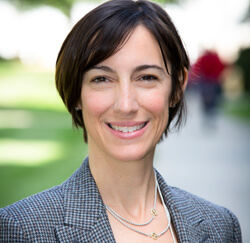
Allison K. Dykes
Allison K. Dykes is vice president and secretary of the university, a role she has held since 2014. She and her team are responsible for facilitating and supporting the Board of Trustees in its work of governing the university by establishing policy and exercising fiduciary responsibility for the long-term well-being of the institution, including real property, endowment, all contracts, financial resources, faculty appointments, and student life.
The Office of the Secretary facilitates the engaged collaboration of the president’s leadership team as well as others throughout the Emory community to promote effective and sound university governance. The office is also responsible for preserving institutional memory by maintaining the official record of the Board of Trustees.
Dykes and her team manage and assist the Honorary Degrees Committee, which reviews all honorary degree nominations submitted by the Emory community and recommends to the president a slate of candidates who represent the highest values and breadth of the university's mission “to create, preserve, teach, and apply knowledge in the service of humanity.”
She joined Emory in 1997 as director of regional programs for the Emory Alumni Association and in 2003 was named vice president for alumni relations. She received the Emory University Award of Distinction, Emory’s highest staff honor, in 2012.
A 1992 graduate of the University of Georgia, Dykes holds a bachelor's degree in French and a certificate in global policy studies.
Vice President and Secretary of the University
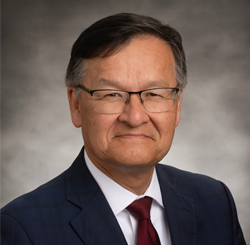
Joon S. Lee
Executive Vice President for Woodruff Health Sciences, Emory University; Chief Executive Officer of Emory Healthcare; Vice Chair Emory Healthcare Board of Directors
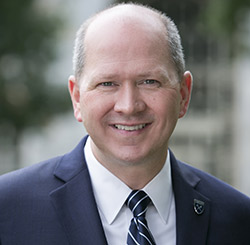
Joshua R. Newton
In August 2018, Newton returned to Emory as senior vice president for advancement and alumni engagement. Previously, he had served for a decade in various leadership positions at the university. In partnership with President Gregory L. Fenves, Newton is responsible for the development and implementation of the university’s next philanthropic campaign, building on Emory’s 10-year strategic plan and its focus on academic eminence. He also will play an important role in furthering Emory’s relationships in the Atlanta community as well as engaging nationally and internationally on behalf of the university.
Newton previously served as president and CEO of the University of Connecticut Foundation. In that capacity, he presided over the five most successful fundraising years in the foundation’s history, raising a total of nearly $400 million in fiscal years 2014 through 2018, representing a 46 percent increase. During his tenure, he focused on increasing scholarship support for students and worked to strengthen engagement of University of Connecticut alumni and other constituents with the university.
A graduate of Belmont Abbey College, Newton’s fundraising experience also includes Converse College (Spartanburg, South Carolina) and Presbyterian Hospital (Charlotte, North Carolina). He has served in multiple leadership roles with the Association of Fundraising Professionals International Board and is a member of the Council for the Advancement and Support of Education and the Educational Advisory Board.
Senior Vice President for Advancement and Alumni Engagement
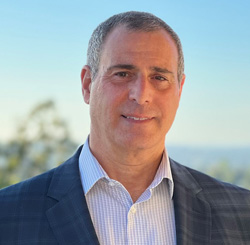
Brad Slutsky
Brad Slutsky is the general counsel of Emory University and Emory Healthcare. He brings more than 30 years of legal experience to Emory, including 18 years at King & Spalding—one of the top 25 law firms in the world, eight years at Qualcomm—a Fortune 100 mobile hardware and software provider, and eight years as general counsel at an S&P 500 / Fortune 1000 payment products and services company (Corpay) and at a private equity-backed digital marketing company (Red Ventures).
Slutsky has worked with universities and health care systems throughout his career, and he and his teams have been selected by the Association of Corporate Counsel and various legal publications as the 2023 Outstanding Legal Department—Large Company, 2018 Outstanding General Counsel—Large Legal Department, and multiple years as a “Top Lawyer” / “Super Lawyer” in Georgia and California and a leading technology attorney worldwide.
Slutsky is an arbitrator for the World Intellectual Property Organization and has served as an arbitrator for the Fulton County, Georgia court system and as a special master in the United States District Court for the Northern District of Georgia. Slutsky received a JD from the University of Virginia School of Law and a BA in Business Economics, magna cum laude, from Brown University.
When he is not practicing law, Slutsky enjoys running marathons, snowboarding, building and programming computers and home automation systems, and studying organizational behavior.
Senior Vice President and General Counsel

Cameron Taylor
As vice president, Cameron Taylor leads Emory’s Office of Government and Community Affairs (OGCA).
The office is the university’s official government liaison—advocating for Emory on a range of topics and monitoring legislative and regulatory priorities. Under Taylor’s direction, staff work closely with the U.S. Congress; the Georgia Legislature; local governments; and local, state, and national civic organizations as well as professional associations to advance policy positions important to the university.
Taylor recently oversaw the creation of Emory’s first enterprise-wide community engagement strategy. Identifying three priorities—health and well-being; social and economic mobility; and arts, science, and cultural enrichment—the strategy uses Emory’s deep well of research, scholarship, economic influence, and human capital to focus on the greatest need areas, in conversation with community partners.
Prior to joining Emory in 2003, she spent a decade on Capitol Hill in a variety of roles. Taylor worked for the now-defunct Office of Technology Assessment, serving as principal author for a congressionally requested status report on aquaculture.
She also worked as legislative director for a member of the House Committee on Agriculture and served as lead Senate staffer for the Northeast-Midwest Senate Coalition under co-chairs Senator Daniel Patrick Moynihan (D-NY) and Senator Jim Jeffords (R-VT). When Senator Jeffords became chair of the Senate Committee on Environment and Public Works, Taylor joined as professional staff and worked to advance brownfields redevelopment efforts, including passage of the Small Business Liability Relief and Brownfields Revitalization Act.
In more than 18 years of service to Emory, Taylor has defined excellence in some of the roles she now oversees.
She began her tenure as Emory’s Washington representative, advancing both specific project goals of the university as well as its larger policy objectives. Understanding the central role of productive working relationships in Washington, Taylor skillfully earned the trust of members of Congress, key members of their staffs, and representatives of the executive branch and federal agencies. To advance Emory policy goals, she coordinated with internal advisory groups and national medical, educational, and research associations.
Beginning in 2012, Taylor served three years as the university’s director of federal affairs, during which time she formed strong and collaborative relationships with congressional members, including Senator Johnny Isakson (R-GA) and John Lewis (D-GA). Since 2015, when she was promoted to vice president and began overseeing the OGCA, Taylor has worked to ensure Emory’s strategic engagement of government stakeholders and community partners.
She is highly involved in the national higher education and health care trade associations. Taylor has served on the Board of Directors of the National Association of Independent Colleges and Universities, the Government Relations Representatives (GRR) Steering Committee of the Association of American Medical Colleges, and the GRR Steering Committee of the Association of American Universities. She also is a member of the Outreach and Engagement Committee of the Council on Competitiveness.
Taylor earned an MS in resource policy and administration from the University of Michigan and a BA in sociology and ecology from Emory. She also is a 2014 graduate of Emory’s Woodruff Leadership Academy.
Vice President, Government and Community Affairs
Deans
The deans are the chief academic officers for the university’s nine schools and colleges. Working closely with central administration, they oversee their school or college’s budget, teaching, scholarly activity, service, and advancement.
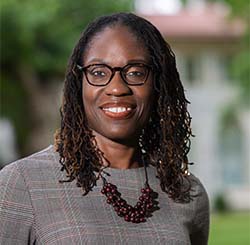
Kimberly Jacob Arriola
Kimberly Jacob Arriola serves as dean of Laney Graduate School, vice provost for graduate affairs, and Charles Howard Candler Professor of Behavioral, Social, and Health Education Sciences in Rollins School of Public Health.
As dean of Laney Graduate School, Arriola seeks to strengthen the graduate student experience and Emory’s ability to attract the best graduate students. This entails ensuring a student-centered educational experience that leverages curricular innovation to prepare students across all disciplines for careers that carry the greatest societal impact. As a result of significant investments and strategic decisions in the past decade, Laney has become a major player in the national and international graduate education landscape for the ways that it supports students and faculty. By focusing the school on interdisciplinary study, professional development, career planning and diversity, and inclusive excellence, Arriola solidifies Laney’s role as an important driver of Emory’s overall institutional trajectory.
Arriola serves as the chief academic, administrative, and fiscal officer of Laney Graduate School. Working collaboratively with critical constituencies, she supports the university’s academic mission through the creation of new programs, facilitates the establishment of processes and procedures to assist all graduate programs, and identifies and develops synergies between graduate education and research across the enterprise.
As vice provost, Arriola is responsible for developing and implementing an aligned and integrated vision for graduate and professional education across the university in collaboration with key constituents. This entails enhancing the student experience across all graduate and professional schools; fostering the recruitment, retention, and successful matriculation of students from historically underrepresented groups; and expanding interdisciplinary graduate and professional education across all relevant schools at Emory.
Arriola holds a PhD and MA from Northeastern University, an MPH from Emory, and a BA from Spelman College.
Dean, James T. Laney School of Graduate Studies
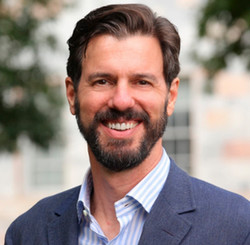
Joseph Crespino
Joseph Crespino is the interim dean of Emory College of Arts and Sciences.
He is one of the nation’s leading historians of the twentieth-century United States, with research expertise in modern political history, civil rights, and the American South.
Crespino is the senior associate dean of faculty, divisional dean of humanities and social sciences, and the Jimmy Carter Professor of History at Emory University. His scholarship focuses on the political and cultural history of the United States and the American South since Reconstruction.
He is the author of three books and the co-editor of a collection of essays. His work has appeared in leading academic journals as well as national publications, including the New York Times, the Washington Post, Politico, and the Wall Street Journal. His most recent book, Atticus Finch: The Biography—Harper Lee, Her Father, and the Making of an American Icon, was published in 2018 by Basic Books. He is currently contributing chapters on twentieth- and twenty-first-century US history to America: A Narrative History, a leading textbook published by W. W. Norton and co-authored with David Emory Shi, Daina Ramey Berry, and Amy Murrell Taylor.
His research has been supported by fellowships from the National Endowment for the Humanities and the National Academy of Education. In 2014, he served as the Fulbright Distinguished Chair in American Studies at the University of Tübingen and has been named a distinguished lecturer by the Organization of American Historians.
Interim Dean, Emory College of Arts and Sciences
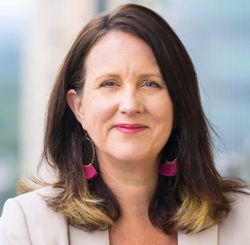
M. Daniele Fallin
With more than 250 scientific publications that have been cited more than 22,000 times, Fallin’s globally recognized research focuses on applying genetic epidemiology methods to studies of neuropsychiatric disorders including autism, Alzheimer's disease, schizophrenia, and bipolar disorder and to developing applications and methods for genetic and epigenetic epidemiology, as applied to mental health and development.
Fallin has led multiple CDC- and NIH-funded projects regarding how environments, behaviors, genetic variation, and epigenetic variation contribute to risk for psychiatric disease, particularly autism. She currently leads the B’more Healthy Brain and Child Development (HBCD) study, one of 25 sites of the NIH’s newly initiated HBCD study, where she also serves as an associate director of the administrative core to guide epidemiologic design.
Prior to joining Rollins, Fallin worked at the Johns Hopkins Bloomberg School of Public Health for 22 years, where she served as chair of the Department of Mental Health, Sylvia and Harold Halpert Professor, Bloomberg Centennial Professor, and held joint appointments in the Bloomberg School’s Departments of Epidemiology and Biostatistics and the Johns Hopkins School of Medicine’s Departments of Medicine and Psychiatry. While at the Bloomberg School, Fallin directed the Wendy Klag Center for Autism and Developmental Disabilities and previously served as director of the genetic epidemiology area within epidemiology prior to becoming chair of the Department of Mental Health in 2013.
Fallin completed a bachelor of science from the University of Florida–Gainesville and earned a PhD in genetic epidemiology from Case Western Reserve University.
Dean, Rollins School of Public Health
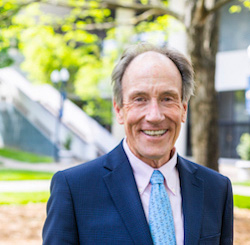
Richard D. Freer
Richard D. Freer, Charles Howard Candler Professor of Law, became the dean of Emory University School of Law on July 1, 2024. Through his 41 years on the faculty, in various leadership roles—including the university associate vice provost for academic affairs, Emory Law associate dean of faculty, chair of the university’s Tenure and Promotion Advisory Committee and chair of more than a dozen law school committees—Freer has championed a collaborative approach to decision-making, encouraging robust discussion and forging consensus.
His priorities flow from the core law school mission of preparing principled, sophisticated lawyers who can serve the needs of clients in any milieu. Those priorities include student flourishing initiatives to provide a more integrated and innovative network of support for students, building upon the remarkable scholarly eminence of the faculty, and enhancing ties with alumni, the legal and business communities, and across the university.
Freer is a noted scholar of civil procedure, federal jurisdiction, and complex litigation. He has authored or co-authored 17 books and more than 40 journal articles and essays. His work has been cited by state and federal courts, including the Supreme Court of the United States. He has been elected a life member of the American Law Institute and serves as an academic fellow of the National Civil Justice Institute.
Eleven law school graduating classes have named Freer Most Outstanding Professor. He is a recipient of Emory University’s Scholar/Teacher Award and Emory Williams University Teaching Award. He delivered the 2024 John F. Morgan Sr. Distinguished Faculty Lecture. As a bar review lecturer for more than 30 years, he has lectured to more than 500,000 bar exam candidates nationwide.
Dean, School of Law

Gareth James
Gareth James became the John H. Harland Dean of Goizueta Business School in July 2022.
James is renowned for his visionary leadership, statistical mastery, and commitment to the future of business education. He brings a powerful optimism and contagious enthusiasm to further Goizueta’s work, not only through the school’s stellar scholarship, but also by continuing to build strong bridges to the business community. He believes in the central role that business plays in society and the impact that Goizueta has in preparing the thinkers and innovators of tomorrow. His ambition to drive excellence and strengthen Goizueta’s future is fueled by his experience in data-informed decision making, strategy, and support.
James is a noted scholar and researcher. His extensive published works include numerous articles, conference proceedings, and book chapters focused on statistical and machine learning methodologies. His work has been cited more than 20,000 times. James is also co-author of the extremely successful textbook, An Introduction to Statistical Learning. He has led multiple National Science Foundation research grants and has served as an associate editor for five top research journals. The recipient of two Dean’s Research Awards from the Marshall School of Business, he is a life member, and elected Fellow, of the American Statistical Association and the Institute of Mathematical Statistics.
His many accolades also encompass honors for his superb teaching and mentoring. James is a recipient of the Evan C. Thompson Faculty Teaching and Learning Innovation Award and three-time winner of the Marshall School of Business’ Golden Apple Award for best instructor in the full-time MBA program. He has also been awarded Marshall and USC’s highest honors for mentoring junior colleagues and graduate students, including the Dean’s Ph.D. Advising, USC Mellon, Evan C. Thompson and Provost’s Mentoring awards.
Dean, Goizueta Business School

Molly McGehee
Molly McGehee serves as the interim dean of Oxford College, where she continues to advance the college’s tradition of academic excellence, innovation, and community engagement. A dedicated scholar and leader, McGehee is also professor of English and American studies and has long been a driving force behind Oxford’s academic mission. She was honored with the Emory Exemplary Teaching Award in 2024, recognizing her outstanding contributions to teaching, mentorship, and scholarship.
Prior to her current role, McGehee served as senior associate dean for academic affairs, senior associate dean for teaching, scholarship, and strategic initiatives, and associate dean for faculty development. Across these leadership positions, she has shaped faculty development initiatives, championed scholarly excellence, and fostered inclusive and dynamic learning environments.
Beyond Oxford, McGehee has held influential positions within the broader academic community, including serving as president of the Southern American Studies Association, as an elected member of the boards of both the Society for the Study of Southern Literature and the Southern American Studies Association, and as an elected member of the Regional Chapters Committee of the American Studies Association.
McGehee’s current book project, Atlanta Fictions: Women Writers’ Urban Imaginaries, explores the representations of Atlanta in modern and contemporary fiction. Her scholarly work has appeared in the edited volumes Queering the South on Screen (ed. Tison Pugh, UGA Press) and Remediating Region (eds. Gina Caison, Stephanie Rountree, and Lisa Hinrichsen, LSU Press), as well as in Southern Cultures, Southern Quarterly, Cinema Journal, Studies in American Culture, Southern Spaces, North Carolina Literary Review, and Gale’s American Writers series.
Her teaching and service have been recognized numerous times: in spring 2015, the Black Student Alliance at Oxford presented her with the Reta Cobb Award; in 2016–2017, she received both the Fleming Faculty Service Award and the Phi Eta Sigma Teaching Award. She has twice been awarded the Gregory-Rackley Career Development Grant, and in 2017 received a University Research Committee (URC) grant from Emory.
Interim Dean, Oxford College
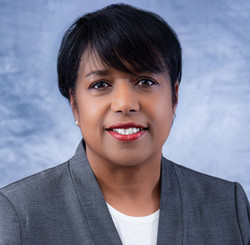
Lisa Muirhead
Lisa Muirhead is the interim dean of the Nell Hodgson Woodruff School of Nursing. She joined the School of Nursing in September 2012.
Muirhead received a doctor of nursing practice degree from the University of Alabama at Birmingham, a post-master's certificate from the University of Massachusetts, a master's degree in nursing with a concentration in community health and nursing education from the University of South Alabama, and a bachelor's degree in nursing from William Carey College.
She has practiced as an APRN for more than 25 years and has an extensive background focused on advancing health equity among underrepresented populations and veterans’ health care. As a recognized national expert and consultant to numerous advisory boards, national groups, and public health organizations, she has contributed to national health recommendations, state nursing guidelines, and standardized competency-based nurse practitioner curriculum.
Muirhead has been recognized for her extraordinary leadership in nursing practice, education, and policy as a fellow of the American Association of Nurse Practitioners and a fellow of the American Academy of Nurses.
Interim Dean, Nell Hodgson Woodruff School of Nursing
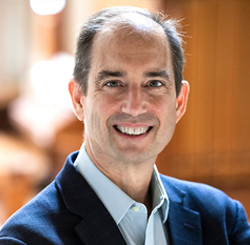
Jonathan Strom
Jonathan Strom is dean of Candler School of Theology.
A member of Candler’s faculty since 1997, Strom became the school’s Mary Lee Hardin Willard Dean on August 1, 2024. His prior administrative leadership at the school included several years as the director of international initiatives, and seven years as associate, then senior associate, dean of faculty and academic affairs (2015–2022). From November 2019 through July 2021, Strom served in an acting dean capacity while former dean Jan Love served as interim provost of Emory University.
As a scholar of church history, Strom’s research interests include Pietism in continental Europe, the history of the Protestant clergy, and the emergence of modern forms of piety and religious practice. He has written widely on the clergy, lay religion, and reform movements in post-Reformation Germany, and is the author/editor of five books, most recently German Pietism and the Problem of Conversion (Penn State Press, 2018). Strom is currently at work on a project on the history of the common priesthood.
A Fulbright Scholar, Strom has been supported in his work by grants from the Lilly Foundation, the Association of Theological Schools, and the Emory University Research Committee. He is a member of the American Historical Association, the American Society of Church History, the Pietism Studies Working Group, and the German Studies Association.
Dean, Candler School of Theology
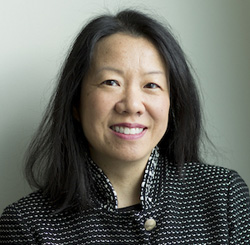
Sandra Wong
Sandra L. Wong, an accomplished surgical oncologist and researcher, joined Emory University School of Medicine as dean in March 2024. She also serves as chief academic officer for Emory Healthcare.
Wong is a surgical oncologist specializing in the management of soft tissue sarcomas, melanoma, and non-melanoma skin cancers. She is among the most widely recognized health services researchers in academic surgery, with an extensive record of research funding and more than 250 peer-reviewed studies to her credit. She has held leadership positions in several prominent professional organizations including the Society of Surgical Oncology, the Society of University Surgeons, and the Society of Surgical Chairs. Wong has been honored with numerous medical student and resident teaching awards.
She completed her bachelor’s degree at the University of California Berkeley. After receiving an MD from Northwestern University Medical School, she completed a surgical residency at the University of Louisville School of Medicine and a surgical oncology fellowship at Memorial Sloan-Kettering Cancer Center.
Wong spent a decade at the University of Michigan where she was an instrumental leader as a vice chair of academic affairs and an associate chief of staff. After she joined the Geisel School of Medicine at Dartmouth, she was able to leverage her collaborative skills to develop cross-disciplinary mentorship and research programs. As chair of the Department of Surgery at the Dartmouth Hitchcock Medical Center and the Geisel School of Medicine at Dartmouth, she was responsible for overseeing all aspects of research, education, and clinical operations. During her tenure at Dartmouth, she developed an interest in studying and eliminating rural health disparities. Her efforts helped spur the creation of the federally funded Center for Rural Health Care Delivery Science, which provides infrastructure to train junior investigators who focus on understanding and solving challenges associated with the provision of equitable health care.
Dean, School of Medicine
Advisers to the President
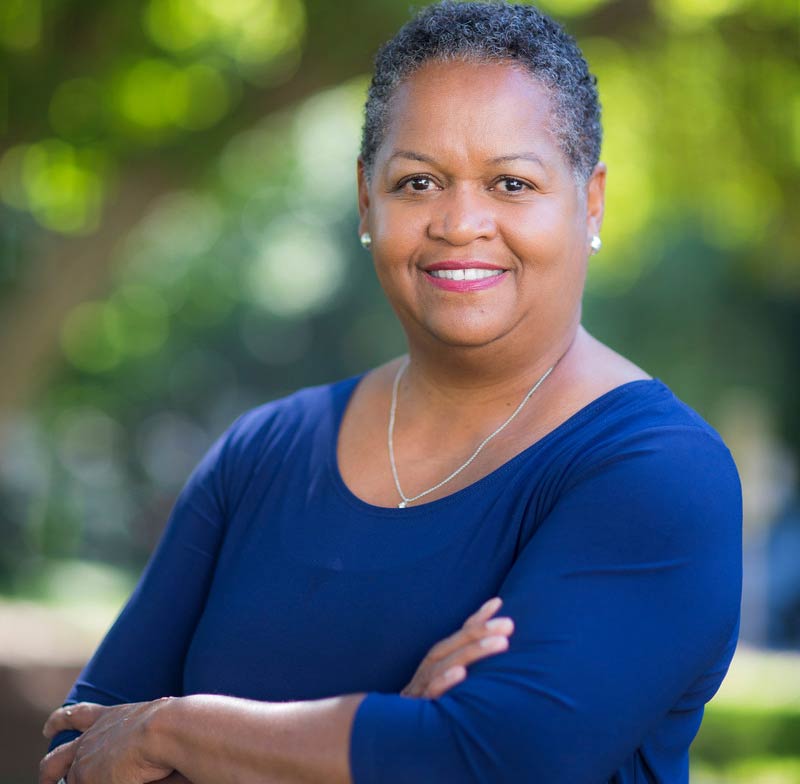
Lynell Cadray
Lynell Cadray advises the president on policies and systemic issues of concern as well as identifies behavioral trends and patterns that require attention. Cadray serves faculty and staff—and, when appropriate, students—with resolving their concerns and issues. She is a member of the International Ombudsman Association and the International Association for Conflict Management.
Since arriving at Emory in 1994, Cadray has served in numerous roles, including vice provost of equity and inclusion; associate dean of enrollment and student services and chief diversity officer at Nell Hodgson Woodruff School of Nursing; and dean of admission and financial aid and chief diversity officer at Emory University School of Law.
She has been recognized with numerous awards, among them, at Emory, the Award of Distinction (2014), the Distinguished Leadership Award for Women of Excellence (2016), and the Career Excellence Award in Equity and Inclusion from the Office of the Provost (2019). In 2017, Cadray was nominated to advance her work on peace as an “Emory Peacemaker” during the 21 Days of Peace celebrations on campus. External accolades include the Most Powerful and Influential Woman Award (2017) from the National Diversity Council.
Cadray received her BA from Tulane University, MA from Georgia State University, and a certificate in conflict resolution from Cornell University. She is a trained conflict coach and mediator as well as a national facilitator on implicit bias who worked with the White House Office of Science and Technology Policy to present this training during the Obama administration.
When she is not working within the Emory community, she serves as board chair for the Georgia Zoological Society, a partner to the Georgia Safari Conservation Park.
University Ombuds
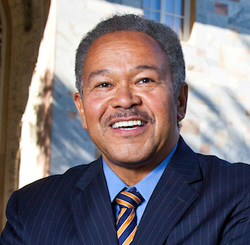
Robert M. Franklin Jr.
In addition to serving as senior adviser to the president, Robert M. Franklin holds the inaugural appointment to the James T. and Berta R. Laney Chair in Moral Leadership. His broad portfolio of academic leadership and faculty experience includes tenure as the tenth president of Morehouse College as well as service on the faculties of Emory, Harvard, and the University of Chicago. An ordained minister, he is nationally known as a scholar, teacher, and author of books and public commentary on spirituality and faith in African American communities and families. Franklin has served as president of the Interdenominational Theological Center in Atlanta and as theologian in residence at the historic Chautauqua Institution.
Franklin earned his BA degree from Morehouse College, his MDiv degree from Harvard Divinity School, and his PhD degree from the University of Chicago. First appointed to the Candler School of Theology in 1989, he built a national reputation at Emory as director of Black Church Studies and later as Presidential Distinguished Professor of Social Ethics and senior fellow at the Center for the Study of Law and Religion. His work as special adviser dovetails with his teaching role at Candler, where he leads students through explorations of moral leadership in the twenty-first century in different cultures and contexts in the United States and around the world.
Senior Adviser to the President
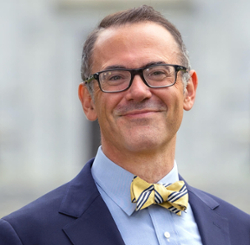
Gregory W. McGonigle
As university chaplain and dean of spiritual and religious life, the Rev. Dr. Gregory W. McGonigle oversees and supports all religious and philosophical life at the university, leads the team in the university’s Office of Spiritual and Religious Life, provides pastoral care and supports interfaith engagement initiatives on Emory’s campus, in Atlanta, and beyond.
Before coming to Emory, McGonigle served for six years as the university chaplain of Tufts University in Boston, Massachusetts, where he oversaw Goddard Chapel and the Tufts Interfaith Center and led a team of ten chaplains and staff supporting the diverse religious and philosophical life of that university. In addition to adding positions for Humanist, Buddhist, and Hindu chaplains, he worked with students, faculty, and staff to revive the CAFÉ Interfaith Social Justice Pre-Orientation Program—a student interfaith engagement program that has won a national award and has been written about as a distinguished program for developing interfaith leaders. He also received Tufts University’s Faculty and Staff Multicultural Service Award.
Before Tufts, McGonigle served for five years as the first multifaith director of the Office of Religious and Spiritual Life at Oberlin College. He involved Oberlin in the White House Interfaith Community Service Campus Challenge, created the Oberlin College Interfaith Council, opened a new Multifaith Center, and helped to appoint the college’s first Muslim chaplain. He also taught courses on interfaith leadership and religion, gender, and sexuality, and he led an alumni trip to India as an exploration of world religions and sacred space.
Prior to Oberlin, he served as a campus minister at the University of California at Davis, helping to build interfaith relationships for a multifaith living community. He has also served in ministry in congregations, at the Dana Farber Cancer Institute, and at an HIV/AIDS community center.
McGonigle is an ordained minister in the Unitarian Universalist Association—a religious movement rooted in Judaism and Christianity that honors spiritual insights from the world’s religions and promotes progressive principles of personal ethics and social justice. He is past president of the National Association of College and University Chaplains and a member of the American Academy of Religion.
He received a master of divinity degree from Harvard Divinity School focused on higher education chaplaincy, and a bachelor of arts degree magna cum laude in religious studies from Brown University focused on South Asian religions. He holds a doctor of ministry degree from Boston University School of Theology.
University Chaplain and Dean of Spiritual and Religious Life